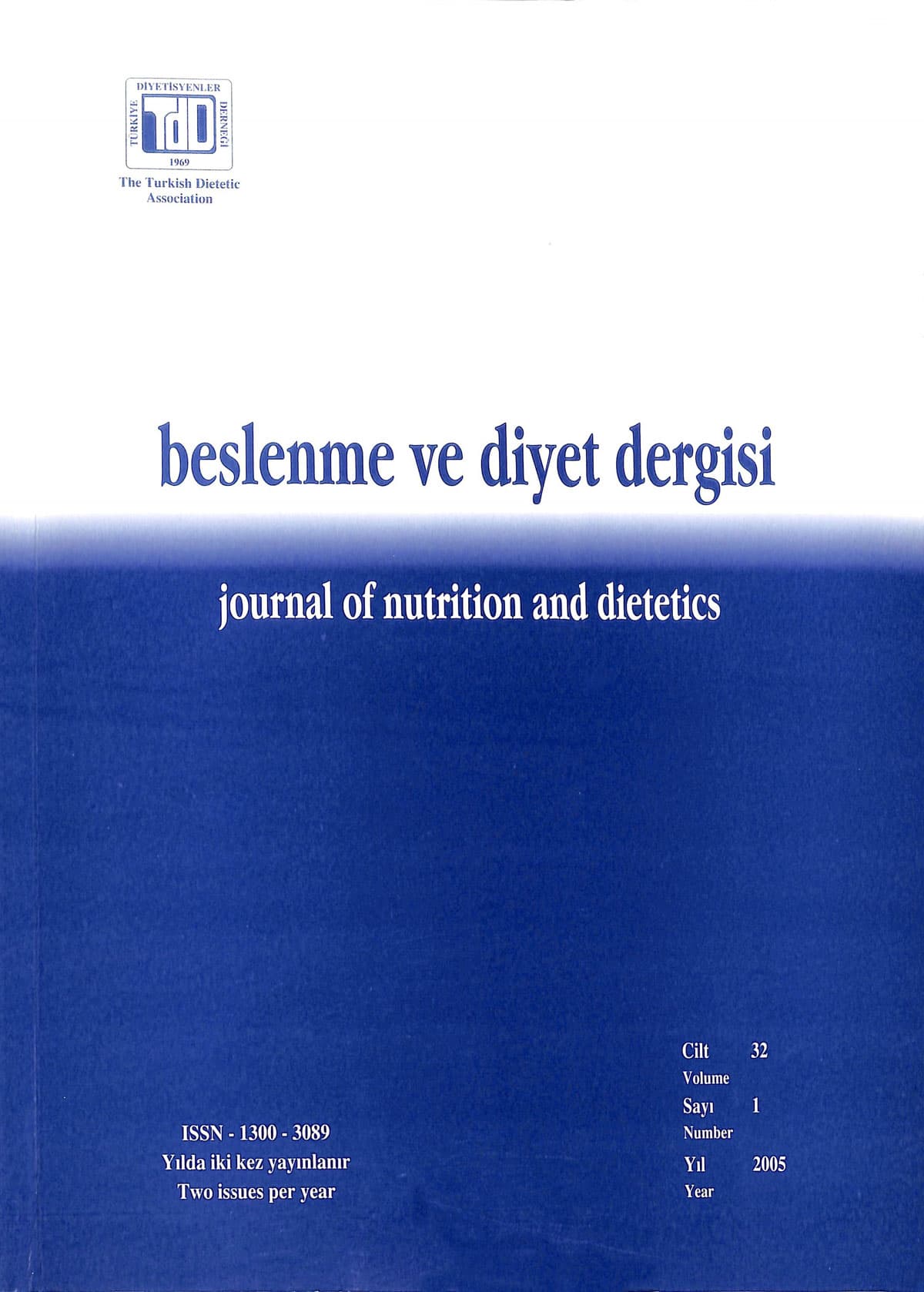The Effect Of Hyperemesıs Gravidarum On Nıttrıtıonal Status, Body Weıght And Bıochemıcal Parameters Of Pregnants
Keywords:
hyperemesis gravidarum, nutritional status, body weight, biochemical parametersAbstract
The aim o f this study is to evaluate the effects of hyperemesis gravidarum on body weight, nutritional status and some biochemical parameters o f pregnants. The sample o f the study consisted o f 30 pregnants with hyperemesis gravidarum (HG) and 26 pregnants as control group (CG) in the same gestational age. Compared with the prepregnaney period, average weight loss o f HG vvas 4.02±1.52 kg (6.5 % o f reduetion) and 20 % of the HG pregnants body mass index (BMI) was below 20kg/m2. Mostly, HG vomited in the morning (23.5 %) and 83.3 % had severe vomiting (> 5 episodes/day). According to basic food groups, HG pregnants had insufficient fo o d intakes. Besides, energy and nutrient intakes were below than the Recommended Dietary Allowances (RDA). Especially, energy intake o f HG group um very low. However, dietary total fat intake was high and 30 % of the energy was provided from fat, in both groups. Also, dietaıy vitamin, mineral and flu id intakes were less in HG group as compared to CG. HG group hospitalized and treated nearly 8±2 days. The fırst day of the hospitalization blood and urine samples were anaîyzed . Hyponatraemia (3 6 .7 %), hypokalemia (26.7 %) and increased (>40U/L) amino transferase (ALT) levels (26.7 %) were determined in HG group. In addition, serum albumin levels ofH G group were below 3.5 g / dl (2.9 ± 0.24 g / dl) and also ketouria (>80mg/dL) were assessed in ali HG group. On the other hand, there was no signifıcant difference betvveen groups (p>0.05) in thyroid hormones profile such as; TSHJT3 andJT4.

